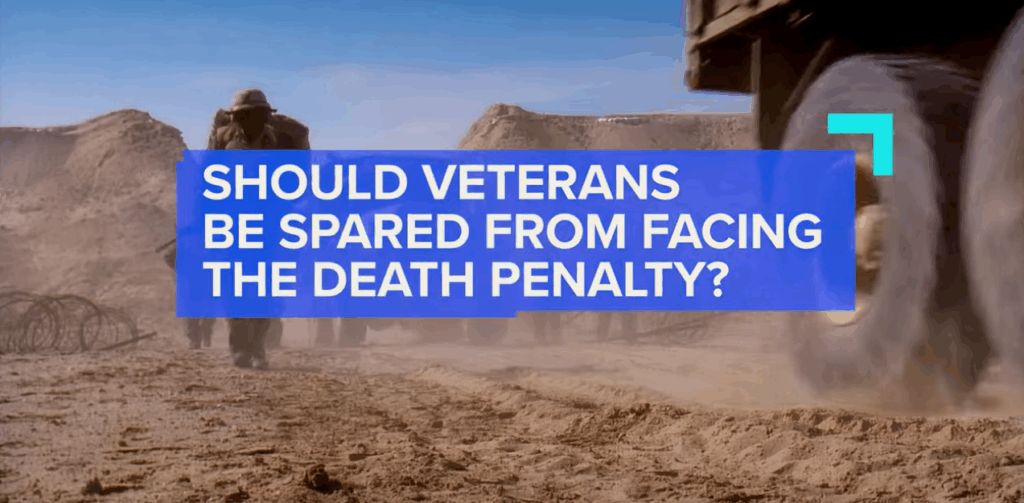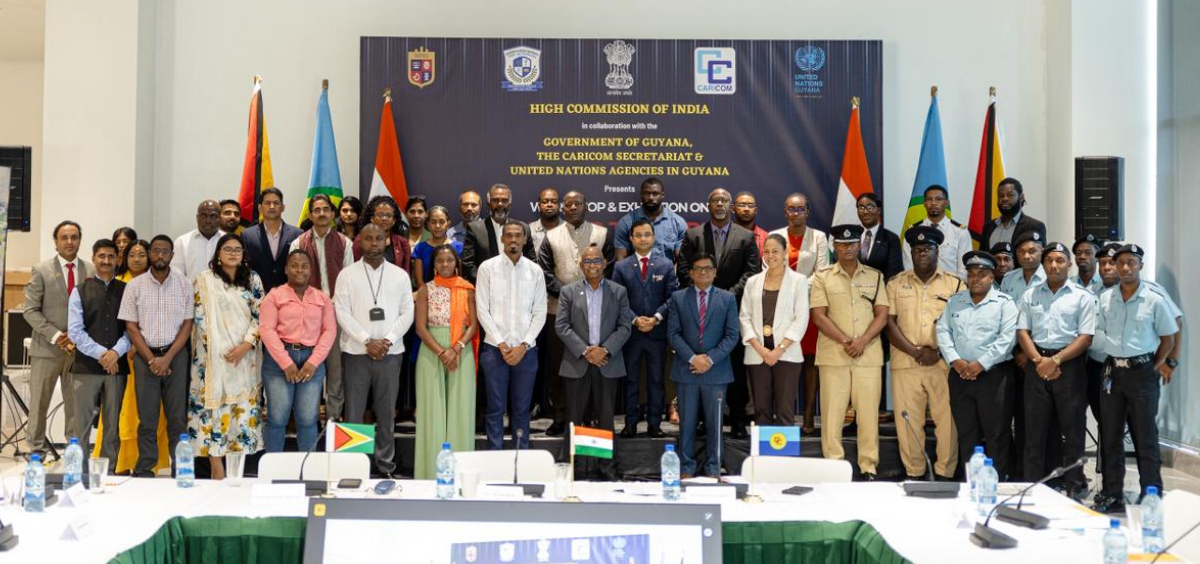How Does America Thank Some Veterans? By Killing Them…
By Laura Finley Photos: YouTube Screenshots On November 11, the United States commemorates Veterans Day, a federal holiday since 1954 created to thank veterans of all foreign wars. But how thankful are we really? A quick look at how many veterans have been executed or are facing execution—literally being killed by the country they served– indicates that the answer is, not so much. According to the Death Penalty Information Center, in the modern era of the death penalty (since 1972), at least 226 military veterans have been executed in the United States. This constitutes 14 percent of all people who have been executed in this time period. As of November 10, seven veterans have been executed in 2025, which is 22 percent of all people executed or currently under death warrant. Some 200 veterans remain on death row today—approximately 10 percent of the death row population—despite veterans constituting only 6 percent of the overall population. Florida is the worst state regarding the death penalty and veterans. As of November 11, Florida is scheduled to execute a record 18 men, one-third of whom are veterans. As of November 12, DeSantis has overseen the execution of seven U.S. military veterans, including five in 2025 alone. Florida Governor Ron DeSantis has issued a death warrant for Bryan Frederick Jennings, a 66-year-old Marine Corps veteran. Jennings is set to be executed on November 13, just two days after Veterans Day. In addition to his veteran status, the warrant was signed without the individualized review required for due process. At the time of that DeSantis signed the warrant, Mr. Jennings did not have state-appointed post-conviction counsel, which violates Florida state law requiring that all death-sentenced prisoners receive continuous representation. Nor has Mr. Jennings’ case been reviewed for clemency in more than 35 years, making the decision to sign his death warrant without any transparent review process odd, at best. One week later, Florida has issued a warrant to execute U.S. Army veteran Richard “Malik” Randolph (Malik Abdul-Sajjad). Many of these veterans have suffered deeply for their service. Each of these veterans has endured the invisible wounds of post-traumatic stress disorder, traumatic brain injuries, Gulf War Illness, or severe mental illness. Most had limited, if any, access to care. As Floridians for Alternatives to the Death Penalty put it, “To execute a veteran who was broken by war and left without adequate care is not justice. It is a failure of duty. It is the final abandonment.” In 2009, the United States Supreme Court recognized in Porter v. McCollum that the U.S. has “a long tradition of according leniency to veterans in recognition of their service.” In its decision, the court acknowledged that combat trauma carries “a mental and emotional toll that juries might find mitigating.” This principle is being ignored today, most notably by DeSantis, himself a veteran who served in Iraq. Veterans are speaking out in opposition to the rash of death sentences and executions of their brethren. Ryan Sanshuck, a U.S. Army combat veteran, Purple Heart recipient, and licensed social worker who served in Operation Iraqi Freedom from 2006 to 2007 wrote in a statement on Veterans Day that, since his service, he has been “fighting a different kind of battle — one for mercy, justice, and truth.” To truly honor veterans, we must honor their service by defending their lives. As Sanshuck so eloquently wrote, “When the State of Florida executes veterans, it tells every one of us that our pain and our service don’t matter. It says that the same government that sent us to war, and failed to care for us when we came home, is willing to throw us away when we struggle the most.” Laura Finley, Ph.D., syndicated by PeaceVoice, teaches in the Barry University Department of Sociology & Criminology and is the author of several academic texts in her discipline.

By Laura Finley
Photos: YouTube Screenshots
On November 11, the United States commemorates Veterans Day, a federal holiday since 1954 created to thank veterans of all foreign wars. But how thankful are we really? A quick look at how many veterans have been executed or are facing execution—literally being killed by the country they served– indicates that the answer is, not so much.

According to the Death Penalty Information Center, in the modern era of the death penalty (since 1972), at least 226 military veterans have been executed in the United States. This constitutes 14 percent of all people who have been executed in this time period. As of November 10, seven veterans have been executed in 2025, which is 22 percent of all people executed or currently under death warrant.
Some 200 veterans remain on death row today—approximately 10 percent of the death row population—despite veterans constituting only 6 percent of the overall population.
Florida is the worst state regarding the death penalty and veterans. As of November 11, Florida is scheduled to execute a record 18 men, one-third of whom are veterans. As of November 12, DeSantis has overseen the execution of seven U.S. military veterans, including five in 2025 alone.
Florida Governor Ron DeSantis has issued a death warrant for Bryan Frederick Jennings, a 66-year-old Marine Corps veteran. Jennings is set to be executed on November 13, just two days after Veterans Day. In addition to his veteran status, the warrant was signed without the individualized review required for due process.
At the time of that DeSantis signed the warrant, Mr. Jennings did not have state-appointed post-conviction counsel, which violates Florida state law requiring that all death-sentenced prisoners receive continuous representation. Nor has Mr. Jennings’ case been reviewed for clemency in more than 35 years, making the decision to sign his death warrant without any transparent review process odd, at best. One week later, Florida has issued a warrant to execute U.S. Army veteran Richard “Malik” Randolph (Malik Abdul-Sajjad).

Many of these veterans have suffered deeply for their service. Each of these veterans has endured the invisible wounds of post-traumatic stress disorder, traumatic brain injuries, Gulf War Illness, or severe mental illness. Most had limited, if any, access to care. As Floridians for Alternatives to the Death Penalty put it, “To execute a veteran who was broken by war and left without adequate care is not justice. It is a failure of duty. It is the final abandonment.”
In 2009, the United States Supreme Court recognized in Porter v. McCollum that the U.S. has “a long tradition of according leniency to veterans in recognition of their service.” In its decision, the court acknowledged that combat trauma carries “a mental and emotional toll that juries might find mitigating.” This principle is being ignored today, most notably by DeSantis, himself a veteran who served in Iraq.
Veterans are speaking out in opposition to the rash of death sentences and executions of their brethren. Ryan Sanshuck, a U.S. Army combat veteran, Purple Heart recipient, and licensed social worker who served in Operation Iraqi Freedom from 2006 to 2007 wrote in a statement on Veterans Day that, since his service, he has been “fighting a different kind of battle — one for mercy, justice, and truth.”
To truly honor veterans, we must honor their service by defending their lives. As Sanshuck so eloquently wrote, “When the State of Florida executes veterans, it tells every one of us that our pain and our service don’t matter. It says that the same government that sent us to war, and failed to care for us when we came home, is willing to throw us away when we struggle the most.”

Laura Finley, Ph.D., syndicated by PeaceVoice, teaches in the Barry University Department of Sociology & Criminology and is the author of several academic texts in her discipline.






















